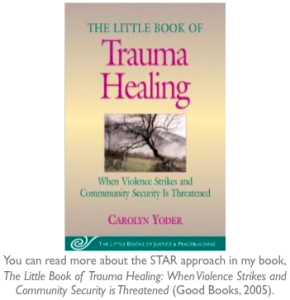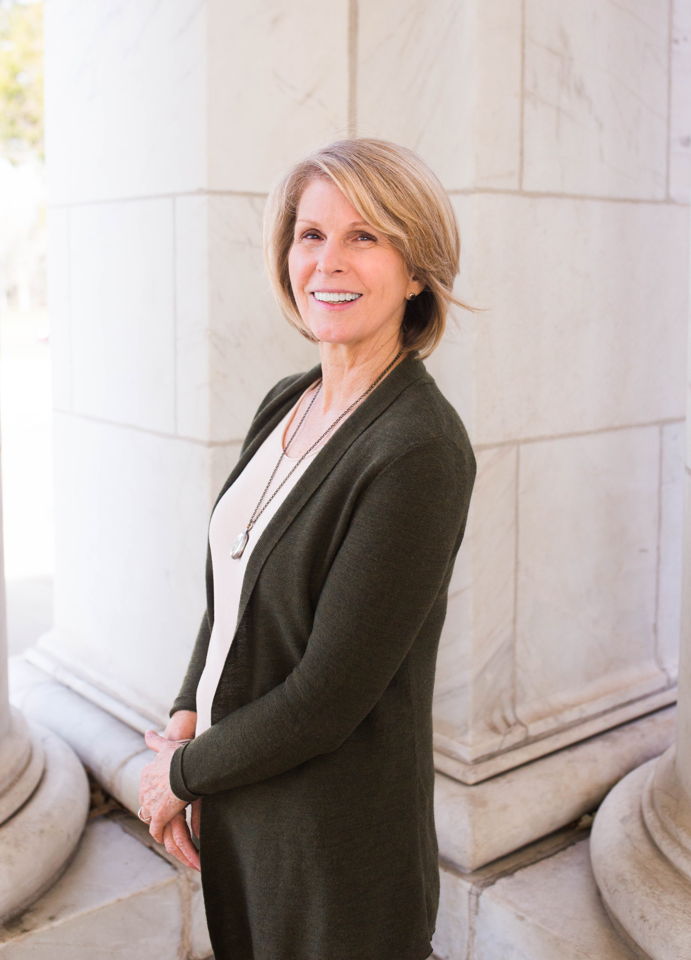About Carolyn
About Carolyn and PeaceAfterTrauma
Welcome! I’m Carolyn Yoder. I’m an international trauma and resilience trainer and a Licensed Professional Counselor (LPC). I specialize in helping individuals and communities who’ve experienced trauma find ways to move toward healing and peace.
If you’re visiting this page, it’s likely that trauma has affected you, your family, community, or country. Or you may be with an organization that works with trauma-impacted populations. Here is the story behind PeaceAfterTrauma.
I’ve spent nearly three decades living and working around the world, including in:
- Asia (Nepal and Bangladesh),
- The Middle East (Egypt and Jordan),
- Africa (Kenya and Swaziland),
- The Caucasus (Armenia) and
- At home in the United States.
In addition, I’ve done short-term work in a number of other countries. In my private counseling practice, I developed expertise working with people who were dealing with traumatic events, PTSD (Post Traumatic Stress Disorder), and other reactions common in the face of difficult circumstances.
The work was challenging and heartbreaking at times. But it was also immensely rewarding.
There was only one problem.
The issue? I kept running into questions I couldn’t answer.
I could help the people who came for one-on-one sessions in my safe, quiet consulting room. But the world outside was full of survivors of—or people still experiencing—torture, trafficking, war, occupation, natural disasters, oppression, terrorism, and the generational effects of historical trauma.
I couldn’t ignore their existence. And I couldn’t ignore the questions that acknowledging their presence brought up for me:
- How many psychologists would it take to treat entire communities—or countries—that were impacted by horrific events? Did people even need a psychologist?
- What lasting good could focusing on a person’s symptom (such as insomnia or rage) do if the underlying roots (poverty or structural violence) weren’t also addressed?
- If an entire community lived under constant threat, wouldn’t hyper-arousal or withdrawal be natural responses rather than signs of a “mental disorder”?
- What role did trauma play in the cycles of violence at personal or national levels I kept seeing or reading about? Would addressing the resulting trauma and the underlying causes contribute to building a more secure and peaceful world?
I started looking for answers as to how to work in communities and societies in the trauma literature, trying to understand the effects of trauma and violence on groups, and searching for tools to address it.
Then, 9/11 created an opportunity to put what I was finding into practice—and learn more.
After the 9/11 attacks, I became the director of a multi-disciplinary team at the Center for Justice and Peacebuilding at Eastern Mennonite University. Our mandate was to develop a training program for community leaders in the US and internationally who were affected by the 9/11 attacks and the cycles of violence that ensued.
Now my questions went beyond how a therapist could work with trauma-impacted communities. They expanded to consider which information, skills, and tools would be safe and most helpful for community leaders—educators, medical personnel, clergy, mental health professionals, parents, human rights workers, government officials, development and humanitarian NGO workers—to use for themselves and others. They included questions about what processes supported the type of trauma healing in communities over the long-term, long after the media had moved on to the next crisis.
 The training program our team created is called STAR: Strategies for Trauma Awareness and Resilience. We adapted and created frameworks drawing on neuroscience, psychology, restorative justice, conflict transformation, human security, and spirituality. We revised the content based on feedback from resilient workshop participants from around the world with deep knowledge of their communities and traditions.
The training program our team created is called STAR: Strategies for Trauma Awareness and Resilience. We adapted and created frameworks drawing on neuroscience, psychology, restorative justice, conflict transformation, human security, and spirituality. We revised the content based on feedback from resilient workshop participants from around the world with deep knowledge of their communities and traditions.
Since 2002, hundreds of STAR evidence-based trainings have supported thousands of people and communities from five continents to become trauma-informed and interrupt cycles of violence against themselves or others. The framework and resources you’ll find on this website are based on what we learned.
Let us know what you’ve discovered about addressing trauma to build a more peaceful world.
The needs in our world are urgent. PeaceAfterTrauma is interested in what you have found supports healing in your context or in the populations with whom you work. Click here to tell us your experience, leave a comment, or ask a question.
Because as we share our lessons learned, we interrupt the cycles of hurt people hurting people and build a more peaceful world.

